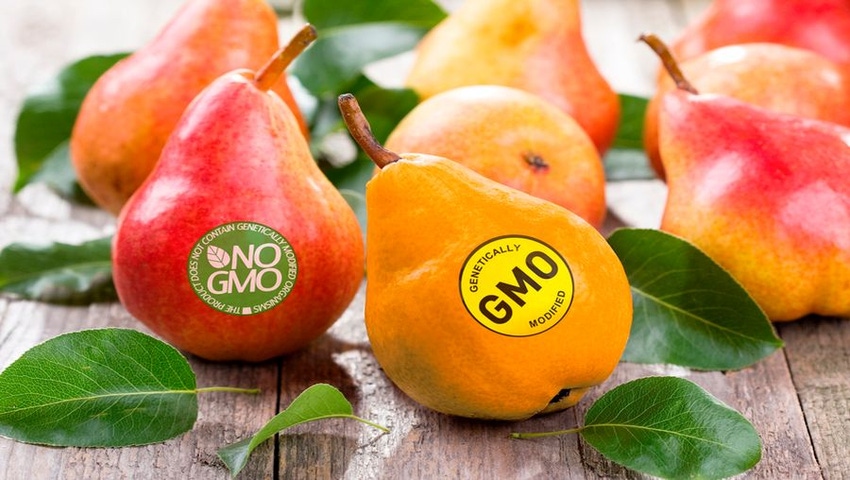Consumers from the United States and the U.K. are increasingly demanding GMO labeling on their products, but this desire is just one aspect of the overall need for transparency from food companies.

Genetically modified organisms (GMOs) have stolen the consumer spotlight in many ways. In the United States, where packaged food products with a GMO-free/non-GMO label saw value sales of US$4.4 billion in 2015, the success of these products benefitted greatly from the volatility of the perpetual debate that centered on one core question; when applicable, should manufacturers be compelled to label products as containing GMOs?
Eventually, an unconvincing compromise was reached in the form of a commitment to incorporate quick response (QR) codes onto product packaging that would guide consumers toward GMO disclaimers. The solution is far from perfect, but avoids the worst-case scenario of having to maneuver through a disjointed labeling system comprised of complex state laws—a nightmare for manufacturers that appreciate clear, standardized regulation and abhor ambiguity. Even if manufacturers decry the result, there is a sense of relief that at least now, the game has a rulebook.
Western European Consumers Remain Skeptical of GMOs
In Western Europe, where no consensus among member states is apparent, Germany led value sales of GMO-free labeled products in 2015, with $614 million. Most dairy farmers in Germany use soy in their dairy cattle feeding programs, and many smaller producers have sourced non-GMO soy from Brazil and India in a calculated effort to at least partly mitigate the angst of GMO-conscious consumers.
In the U.K., demand for GMO products reached $156 million in value sales in 2015, although there are indicators to suggest the issue is peaking. Popular brands are playing a central role in trumpeting anti-GMO rhetoric, appearing diametrically opposed to having these ingredients within their portfolios. Popular tea company Pukka Herbs for example, is one such company leading the way. Although some tea bags are composed of polylactic acid (a type of plastic) made from corn starch—85 percent of which is genetically modified, at least in the United States—it is an indirect issue for tea, as the fear is not about general consumption of products containing GMOs. The issue becomes more of a moral stance against the growing role of biotechnology in food production. Pukka has gone a step further than most by ensuring tea bag strings are derived from non-GMO cotton, showing the issue is not focused purely on consumption, but also on campaigning and acting as a vehicle from which consumers can voice their concern.
Notes From the Organic Market
Consumer demand for GMO-free food does not exist in a vacuum. Other trends closely mimic the concern expressed by consumers, such as those that seek organic, natural and locally sourced products. In 2015, the U.S. market saw $13.4 billion of value sales of organic packaged food, a not insignificant 3.7 percent of the overall packaged food market. In Germany, value sales topped $3.4 billion and garnered 3.9 percent of total packaged food sales. The trend was not quite as prominent in the U.K., however, with just $1.5 billion or 1.7 percent of overall packaged food sales.
Nevertheless, consumers in the U.K. appear to be just as likely to shun products that lack a sense of familiarity. In 2015, an impressive 16 percent of value sales of packaged food products in the U.K. had prominent local sourcing advertised, usually in the form of front of pack text claims, the incorporation of British flags or specific mentions of regions within the U.K. where the product was manufactured. In the United States, it was much less, with just 1 percent of value sales, and this was a similar story for Germany.
The commonalities among the markets highlight that many consumers are asking for the same characteristics. They want to understand the origin of their food, the processing involved, and whether it has that actively-sought feeling of familiarity.
GMO-free/non-GMO claims help achieve a level of familiarity, but do not automatically score a default homerun with consumers. Despite a huge majority of research corroborating manufacturers on the safety of GMOs, consumers still concern themselves with the long-term unknowns, and many will boycott products containing GMOs while trumpeting the strengths of organic. In the eyes of manufacturers, the goalposts have (or at least should have) shifted. Proving GMOs to be safe still does not make products any more appealing to consumers. Consumers want to be reassured that a company’s agenda is about more than the bottom line, and about answering their concerns, irrespective of whether the manufacturer feels like these have been scientifically, empirically or even adequately justified.
Transparency Remains Central to Success
This is the crux of the issue. Many groups have spoken out against the deal struck in the United States that gives manufacturers a choice between a digital QR code or product packaging claim. The argument against a QR code is it leaves a large segment of the less-tech savvy population in a position to be largely unaware of whether their food is GMO free. In response to this concern, leading players in the United States, including General Mills, Kellogg Co., Campbell Soup Co., ConAgra and Mars, committed to labeling GMOs in products regardless of whether the law required them to do so, taking the moral high ground and earning a quick win with consumers who felt their voices were heard.
In many ways, this is on the back of the realization that there is more to the story than a claim. Consumers want the story behind their food, and they want to know the minute details of the various steps that food took to reach their plates. While GMO-free/non-GMO claims will be perceived as a positive, it remains crucial that manufacturers adequately tell consumers through this value-added information what the product essentially is—rather than simply telling them what it is not.
Alan Rownan is ethical labels analyst at Euromonitor International (euromonitor.com). He monitors key industry trends and forecasts, and provides insights through articles and analysis into the ethical labelling industry. Rownan holds a master’s degree in ethics from Dublin City University and an undergraduate degree in journalism and editorial design from the University of Wolverhampton, England.
About the Author(s)
You May Also Like




.png?width=800&auto=webp&quality=80&disable=upscale)